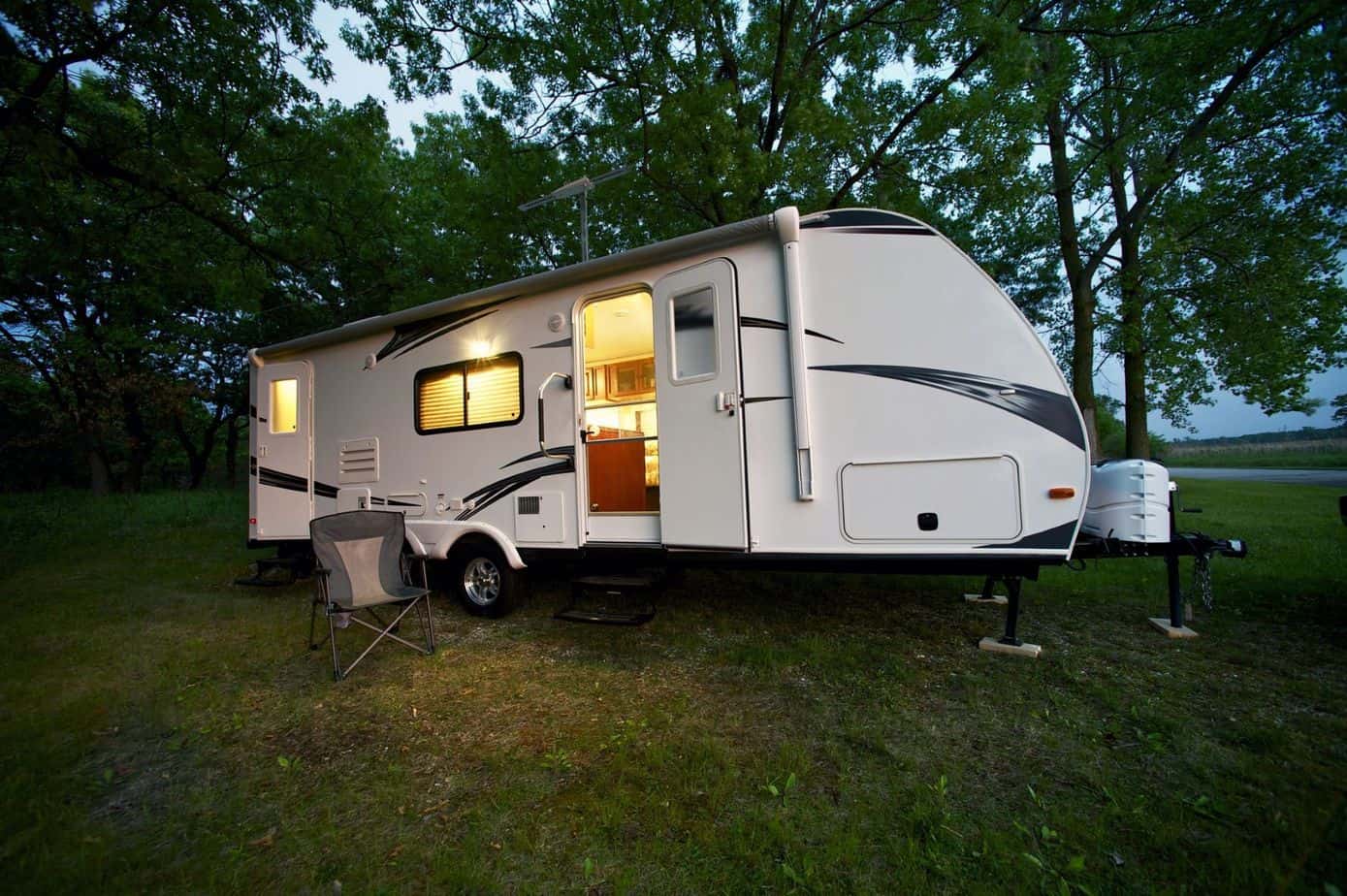Some of the best advice you’ll get as a new RV owner is to keep a generator onboard, especially if you will be traveling well off the beaten path.
Learning how to charge RV batteries with a generator is pretty simple and straightforward. While it depends a little on the kind of generator you invest in, connecting that generator to your battery bank is never the most difficult thing you’ll do as an RV owner.
Below we run through a couple of the things you need to know about mastering this critical piece of RV maintenance. We also shine a light on a couple of other battery power-up methods you might need to use if your generator is misbehaving.
Can I Charge an RV Battery with a Generator?
You should know that the overwhelming majority of generator options on the market today are not specifically designed to recharge your RV batteries – at least not without a little bit of modification (and a lot of extra time).
Most RV battery options are of the 12 V variety, and most of the RV generator options – small, portable, compact units that can fit onboard and RV – put out 8 A of power.
You could undoubtedly charge 12 V RV camper batteries with 8 A, but you’ll have to wait a while.
Worse, you’re going to stress and strain your generator throughout the duration.
Thankfully, though, there are some things you can do to simplify the process a little bit and give your generator a “boost” to smooth things out, speed things up, and guarantee you bring those RV batteries back to 100% power.
We highlight some of those details below.
What Size Generator Should I Use?
At an absolute minimum, you need to be working with a 3500 W generator with a full eight amp power projection, or you will be wasting your time.
Inverter-style generators are even better, though you should shoot for those bare-bones specs we mentioned a moment ago all the same. Inverters will smooth out the energy current going into your RV batteries, which will help with reliability.
Of course, if you can bump up your generator to something even larger – 4000 W or bigger – you’ll have a much easier time (and a much faster process) getting your RV batteries back to 100%.
For obvious reasons, though, you’re going to be somewhat limited with the size of generators you can use. There’s generally not much extra room on RVs to stick with oversized generators or the fuel they need to operate.
Shoot for 3500 W to 4000 W or larger if you can.
How to Charge RV Battery with Generator
Whole RV Powerup
The most straightforward – though not the fastest – way to get your RV batteries charged up with a generator is simply connecting your generator to your RV electrical system.
Of course, the significant advantage here is that you’ll be able to utilize all of your RV electrical components – your appliances, entertainment systems, lights, etc. – while you recharge your batteries.
Once again, though, remember that this approach is the slowest approach of them all.
It’s not at all unusual for you to have to run a 3500 W generator for a few hours (maybe even overnight) to get your batteries back up to 100%. It may even take a lot longer than that, depending on how much you’re using the electrical components in your RV while you are powering the batteries.
You also want to make sure that you’ve either upgraded or bypassed the built-in slow trickle charger system if you are trying to charge the batteries on a camper built before the middle 2000s. That will slow things down significantly if it’s left in the way.
Finally, make sure that your generator’s power is compatible with your RV electrical system.
RVs with 15 amp and 30 amp plugs are (by and large) going to work well with almost any generator that puts out 120 V of power.
When you have RVs with 50 amp plugs, you’re going to need something a little beefier and something a little or powerful.
Battery Boost with Your Generator
This approach is significantly faster (to charge your batteries, anyway) but is more labor-intensive.
You want to use your portable generator to power up a three-stage portable battery charger and then connect that three-stage portable charger directly to your RV system.
On the surface, this introduces a lot of extra and unnecessary steps. But by providing power to the battery charger system (not to the entire RV itself), you’re able to deliver much more efficient, faster, and more consistent energy directly to the batteries themselves.
The huge bonus here is that you not only cut down on charging time but also save on generator fuel and eliminate the noise and pollution your generator inevitably puts out.
Other Ways to Power Your RV Batteries
Of course, your generator isn’t the only way to get your RV batteries back up to full capacity.
Passive solar power systems can be used in conjunction with generators (or independent of any other “help”) to provide juice to your batteries.
The best way to top up your RV batteries is to connect directly to shore power whenever you find yourself in an RV camp or back at home base.
You can’t beat on-demand, consistent, and high flow shore power for bringing back your batteries in the blink of an eye.
Closing Thoughts
Neither of those situations will work all the time – solar isn’t helpful when the sun goes down, and shore power isn’t available when you are rolling down the road or camping off the grid – so you want to have your generator on hand all day the time anyway.
Ensure that your generator is on board, has plenty of fuel, and is regularly maintained, and you’ll never have to worry about your RV batteries going dead ever again!
Don’t forget to check out our Recommended RV Equipment list!
Get a FREE copy of the Go Together Go Far Travel Trailer Hookup and Disconnect Checklist when you sign up for the Go Together Go Far Newsletter!
Want to learn more about different types of RVs? Check out:
- Best Off-Road Camper Trailer Under $10,000
- Best Bunkhouse Travel Trailer Under 30 Feet
- Are Lance Travel Trailers Any Good?
- Do Rope Lights Deter Rodents?
- What Are the Best Names in the RV Industry?
- 3 Best Travel Trailers for Family of Four
- Blue Ox SwayPro Basics: Top Questions Answered
- Adding A Washer Dryer To Travel Trailer? What You Need To Know.
- Best Drone For Camping, Backpacking, and RVing: A Complete Guide to Drones for RVers
- Furniture and RVs – How To Get It Through the Door…
- How To Get Rid Of A Poop Pyramid In RV Black Tank
- Do You Know How Long To Keep Fresh Water In RV Tank Storage?
- What Is The Best Outdoor Security Camera System For Your RV?
- RV Bumper Mount Grills: 5 Best Options For Your RV Or Camper
- Best Electric Tankless Water Heater for Your RV. What You Need To Know
- Read Before You Buy! How to Find the Best Scooter for RV Camping
- 3 Best Travel Trailers for Family of Four
- Top RV Brands: What Are the Best Names in the RV Industry?
- Lance Campers: What Makes Them So Different?
- Best Bunkhouse Travel Trailer Under 30 Feet
- Best Off-Road Camper Trailer Under $10,000
- Best Weight Distribution Hitch With Sway Control For Travel Trailers in 2022
- What Are The Best Built Travel Trailers? Things To Consider.
- How Does An RV Refrigerator Work? A Quick Guide.
- Why Does My RV Carbon Monoxide Detector Keep Beeping? A Quick Guide.
- Where Is The Power Converter In My RV Or Travel Trailer
- What is the Best Generator for 50 Amp RV?
- Wireless RV Security Camera Systems: Is Solar Powered Security Without Wi-Fi An Option?
- Best Portable Air Conditioner for Camping for 2022
- How to Find the Best 3500 Watt Inverter Generator for RV Camping
- Best Propane Generator For Your RV: Read This Before You Buy!


